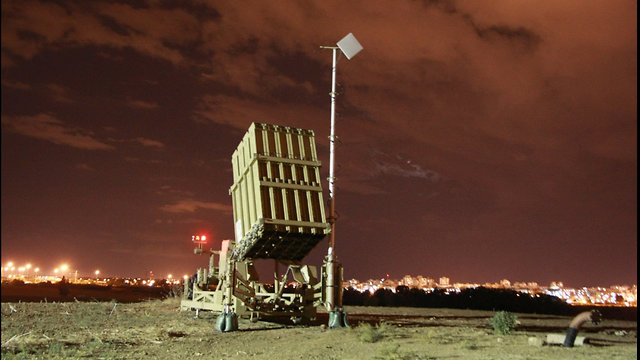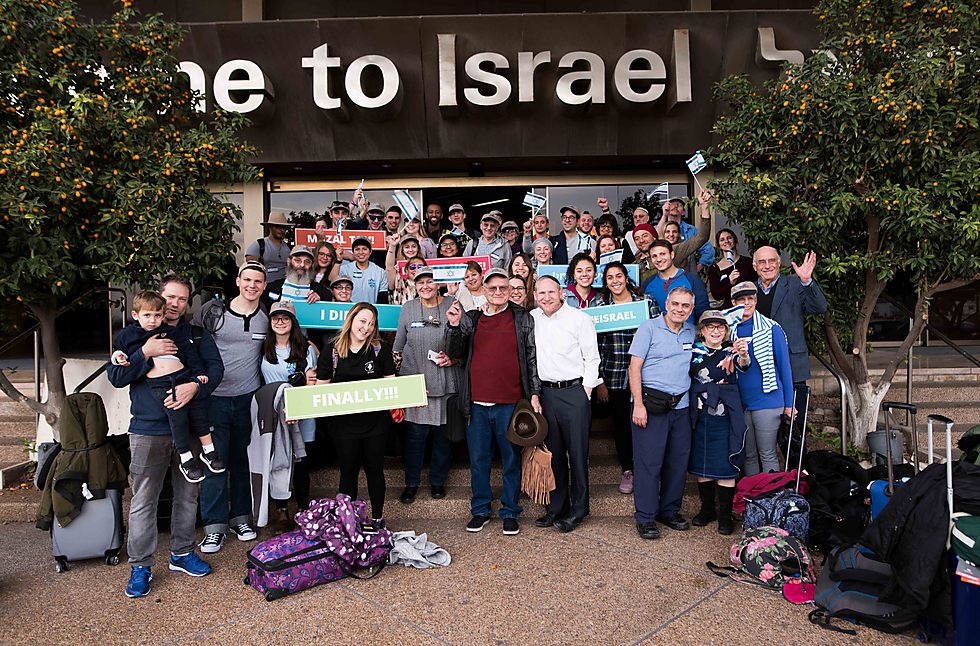
As we move beyond the euphoria of celebrating our seventieth year, the time is ripe to analyze whether the Israel of 2018 matches the original vision of our Zionist founding fathers.
In answering this question we ought to appraise our standing through the military, economic, and social lenses. These perspectives can help to define whether Israel really is a place where Jews from the four corners of the earth wish to live; as was the original Zionist call.
SECURITY
On this front, there are two levels of looking at Israel’s standing. Israel today is a regional superpower with capabilities that place it in the very elite of global actors. The IDF’s ability to use force, utilize technology, its doctrine, and its cyber capabilities are things that other countries come here to learn more about.
Superficially, in terms of our defense capabilities, Israelis have reason to be satisfied. But things are not that simple and there are lingering questions. For example, why is it that despite all of this power, Israel continues to face the threat of war and of attacks by its enemies? Despite all of Israel’s power, why is it that new threats rise up time and time again, causing our people to worry daily about the outbreak of conflict.
Iran, a state physically distant from Israel, now very much approaches our borders by way of its increasing reach. It is becoming a tangible threat. The threat of war has existed since the day of Israel’s independence, and it continues to concern Israelis to this day. Can we truly claim to have deterred our enemies if Israelis remain burdened by the specter of war? The answer, unfortunately, is 'no.
In our most frank of moments, Israelis ask themselves for how long they must continue to live like this.
The central and underlying trigger for Israel’s security situation remains the Israeli – Palestinian conflict. The remainder of Israel’s foes and adversaries - whether Iran, Hezbollah, or Islamists in the region - use this as a pretext to fight Israel. In theory, if that conflict were to end, the rug would be pulled out from under the remainder of Israel’s enemies. This wouldn’t result in regional peace, but it would act as a shield against the other aggressors seeking to attack Israel.
As a grandfather, I find myself asking whether my grandchildren will have to live like I did, under the daily fear of war, and with the need to serve in the military. My mother asked these same questions from the day I was born, and now I ask this - as do my children - about their children.
The fact of the matter is that many Israelis do not want to continue to ask these questions. They want these issues resolved.
While Israelis no longer need to worry that an Arab state will conquer the country, the threat of war and mass attacks on our cities, towns, and villages remains very real. That fact is not the reality envisaged by the Zionist pioneers. Fidelity to the original Zionist creed should help guide the future actions of our government.
SOCIO-ECONOMICS
On the economic front, the State of Israel is nothing short of a miracle. It is economically stable, its GPD is strong, and its standard of living is high. Every Israeli economic parameter competes with those of advanced European and North American states. Israel is significantly more advanced economically than southern European states, despite its security problems. It uses resources correctly, and it utilizes Jewish ingenuity to create further prosperity.
Yet socially, the news is mostly bad. The country is more divided than ever before, constituting one of our most severe problems. Israelis may have become accustomed to living with an uncertain security situation, but they will not accept the social situation, which has become a source of very high frustration.
The current leadership only encourages deeper social divides, and such divides are a threat to national cohesion. Every party in the current ruling coalition is part of a government that attacks the nation’s courts, police, and other democratic gatekeepers.
Political elements deliberately incite old Sephardic – Ashkenazi tensions that should have died out long ago. Judaism has always held that internal divisions form the biggest threat to the Jewish nation, and today’s reality appears to confirm that.
Divisions are growing between Israel’s settler community and the rest of the country as well.
There are elements among the settlement community that do not recognize the legitimacy of the state, and radical rabbis are prepared to delegitimize the IDF chief of staff - something that once was utterly taboo. The exclusion of women has turned into a dominant debate in society, and some youths from the settlements are facing the dilemma of choosing loyalty to their rabbi or to their military commander.
These are new and disturbing societal trends; pointing to big and growing social divisions, which are not necessarily measured through ideologically opposed camps. Left and Right are not as divided as one might think. The real challenge is the alienation of various segments of society from one another. The leadership has failed to address this problem, and in fact encourages it for political gain.
NO BIG WAVES OF ALIYAH
Lastly, an examination of Jewish immigration to Israel shows that waves of large-scale immigration have become a thing of the past. While Israel remains a haven for Jews all over the world, the fact is that the once massive wave of immigrants has has been reduced to a trickle.
Between 1991 and 2001, more than a million immigrants from the former Soviet Union made Israel their home. From 2011 to 2015, Israel received 102,000 Jewish immigrants.
It seems as if Jews living in the Diaspora are unwilling to make their home here. It is possible that considerations such as those already outlined have begotten this downturn; even in the face of growing anti-Semitism.
We must not ignore such realities, for so doing will only cause our problems to worsen.
On a personal level, I tell you that Israel is my only home. I could never envisage living anywhere else. My children also wish to continue living here. But there is a deeper, overall sense that things could be much better. Our leadership must take decisions that though painful, would significantly improve our situation in the long term.
If that can be done; if our leaders can place us upon a course to peace and social justice, they will be tackling some of our most severe and enduring national problems, and our exiles might yet be ingathered to a more just and secure Sate of Israel.
Brigadier-General Shmuel Tzuker (Res.) is a former commander of the Gaza Division, the Lebanon Division and the Judea & Samaria Division. He was designated Deputy Director General of Production and Procurement for the Israeli Ministry of Defense. He is a lecturer at Bar-Ilan University.


















